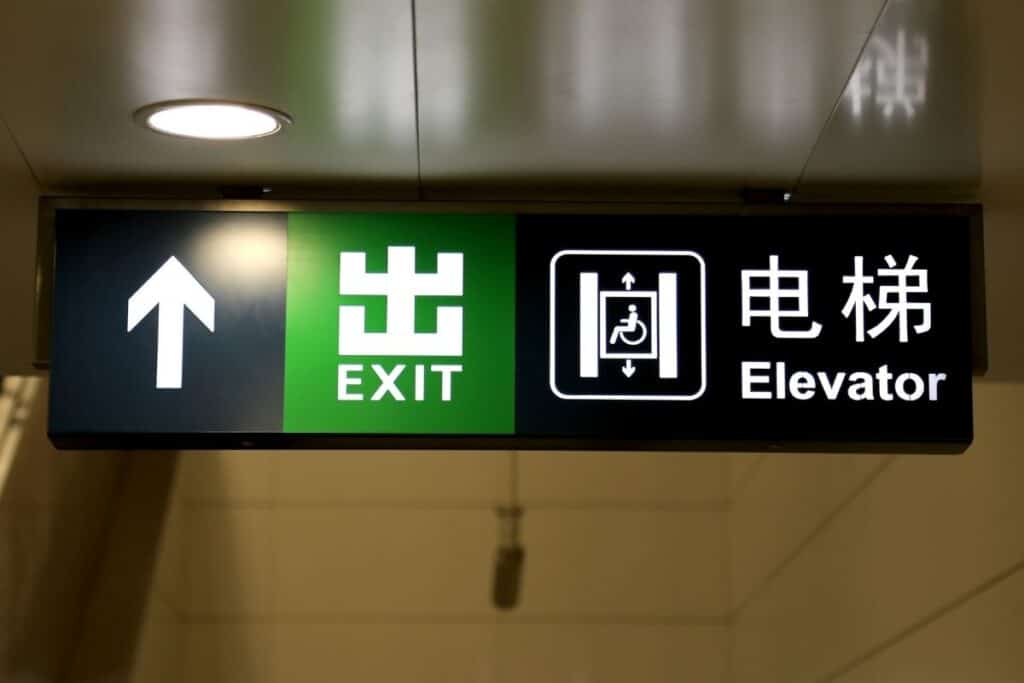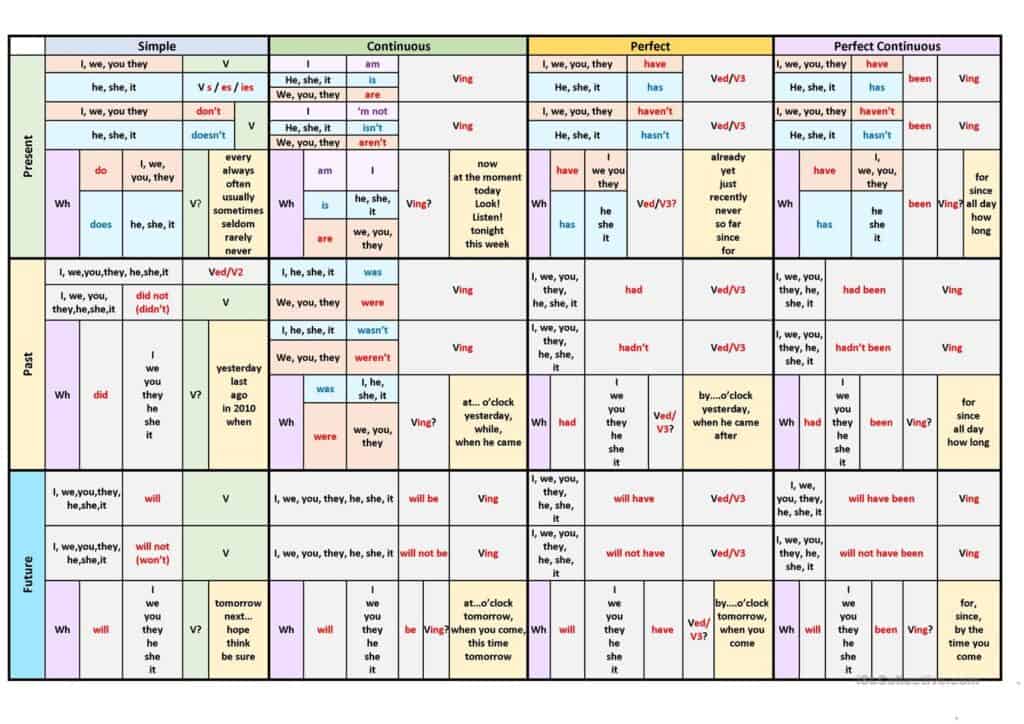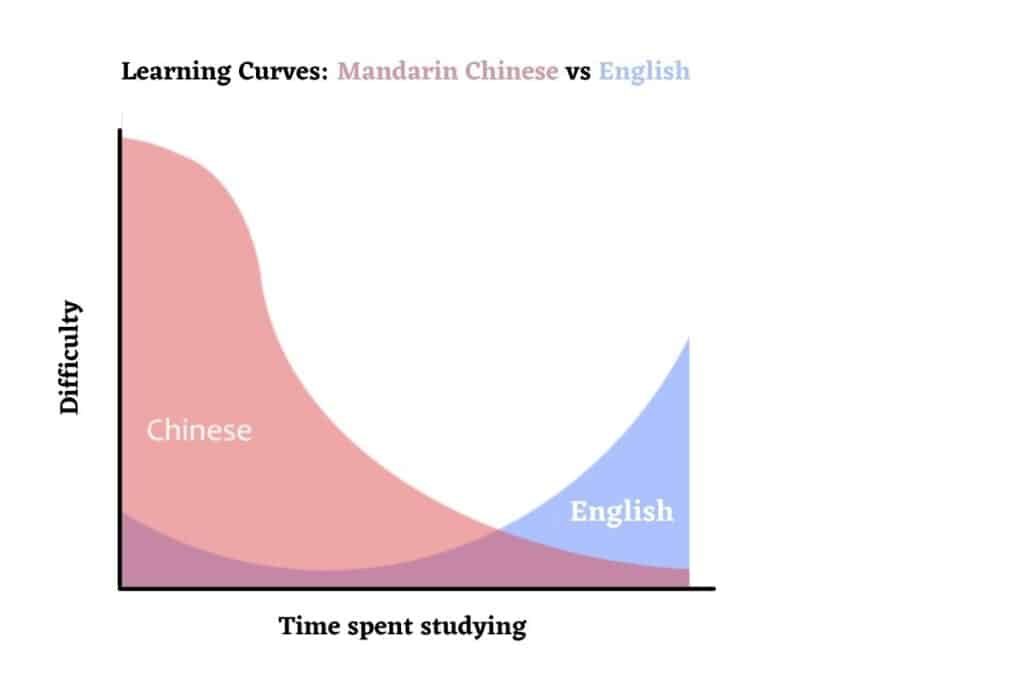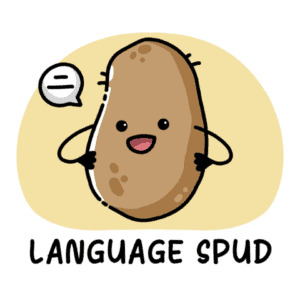
There has long been debate about which languages are the hardest to learn.
If you’re a native English speaker, you’ve probably already been told which languages are the hardest to learn (yes, Mandarin Chinese is one of them).
However, this is also a common question asked by Chinese people on the Chinese internet.
Not surprisingly, ‘English’ is one of the most common answers.
But which is more difficult to learn: English or Mandarin Chinese? One of them must be objectively more difficult to learn than the other, right?
There is no definitive answer to this question because it depends entirely on your mother tongue, as well as a whole range of other variables. Both languages are very different from each other, which is why native speakers from both sides claim the other to be the more difficult language to learn.
Is There Evidence That English Is Easier To Learn Than Mandarin Chinese?
Psychologist Sophie Scott from the Wellcome Trust conducted brain scans on participants of a study as they spoke their native tongue.
The Chinese participants in the study utilised both sides of their brains to communicate in Mandarin. When the English participants began to talk and listen, only the left temporal lobe was in use.
The right side of the brain processes intonation and melody, and as Mandarin is a tonal language, this is why both sides of the brain need to be used to process it.
So, based on this study, it seems you literally need to use more of your brain to learn Mandarin Chinese. But does this study tell us it’s more difficult to learn than English?
Given that both languages are very different, let’s see what native English and Chinese speakers usually say about each other’s languages.
Difficult Aspects Of Learning Mandarin Chinese
The Writing System
How long does it take to learn how to write thousands of Chinese characters by hand? A long, long time. Learning to write Chinese characters is the most time-intensive aspect of learning Mandarin Chinese which carries with it the least practical reward. It’s why most foreign learners don’t bother with it!

Having said that, even if you don’t learn to write characters by hand, you still have to learn to recognise them and pronounce them if you want to communicate both verbally and digitally (with your phone and computer).
Learning how to write 26 letters of the English alphabet takes nowhere near as long.
Mono-Syllabic Sounds
Each character in Mandarin Chinese is represented by a smaller selection of mono-syllabic sounds.
Let’s take the sound ‘shi’ for example, which could mean many different things depending on its tone or character.
| English | Mandarin | Pinyin |
| to be | 是 | shì |
| time | 时 | shí |
| matter, affair, thing | 事 | shì |
| ten | 十 | shí |
| shit | 屎 | shǐ |
| poem | 市 | shī |
This makes things difficult as you have to train your ear to be sensitive to tones and context, but what if a word has the same pronunciation and the same tone?
| to be | 是 | shì |
| to test, to try, experiment | 试 | shì |
| room, work unit, grave, scabbard | 室 | shì |
| to fit, suitable, proper | 适 | shì |
| type, form, pattern, style | 式 | shì |
| power, influence, potential | 势 | shì |
| life, age, world, generation | 世 | shì |
How can you learn a language with so many seemingly identical spoken words!?
Tones
In my opinion, a lot of native English speakers learning Mandarin make a bigger deal out of tones than necessary. Many newbie learners are instantly mind-boggled by tones as they’ve never had to contemplate them before.
In my experience, they are something naturally picked up over time as you spend more time with the language.
However, for each new Mandarin Chinese word you learn, you must learn a character and a specific pronunciation that also includes a tone. Some might say that isn’t as difficult as you’d think, but it’s definitely not easy.
Accents
This is a challenge for any language learner, but accented Mandarin presents its own difficulties and challenges.
Firstly, China is massive. City to city, town to town, and even village to village, the Chinese people speak many variations of Mandarin.
Secondly, changes in pronunciation of monosyllabic words with fewer sounds make things much more difficult to understand. For example, if someone says ‘window’ in a weird accent, it still kind of sounds like the distinguishable word ‘window’ in English. If someone pronounces “shi” as “si” (common in southern China) then that opens up a long list of other possible words they could be saying in Mandarin Chinese.
Thirdly, during my many years in China, I’ve met only a handful of people that were willing to slow down their pace of speech to help me understand Mandarin.
Those people were my teachers.
Everyone else either refuses to engage with you in Mandarin or speaks to you at their normal 1000 miles-an-hour pace.
Difficult Aspects of Learning English
Grammar
The simplest aspect of learning Mandarin Chinese is grammar. English grammar is absolutely insane in comparison to Chinese grammar.
Conjugation of verbs, tenses, plurals, exceptions to the already complicated grammar rules, etc. are all things that don’t exist in Mandarin Chinese. It’s one of the many reasons they place so much emphasis on teaching grammar in English lessons in China.
Complicated grammar is the most difficult part of learning English according to most Chinese people.

Pronunciation
If you think you’ve learned all of the sounds of English after you’ve learned the alphabet, think again. Long and short vowel sounds, diphthongs, silent letters, etc. are unnecessarily annoying.
Wouldn’t it be easier if the written and spoken form of English bared a closer resemblance?
For example, the English language has 19 vowel sounds. That might not seem like a lot, but it only has 5 vowels to spell them with. So, this results in words such as ‘good’, ‘food’, and ‘blood’ all having different vowel sounds.
As a native speaker, this is most likely a problem you’ve never even thought about. As a Chinese person learning English, this is a massive pain in the arse.
Intonation and Stress
Mandarin Chinese has tones, sure. But we English are famous for saying one thing and meaning something totally different using tones of our own.
By emphasising and stressing different words, we can change the meaning of an entire sentence using exactly the same words.
If you manage to get to a level where you can understand these nuances in spoken English, you now have the added challenges of deciphering these subtleties in writing. How on earth are you supposed to read intonation and stress?
Accents
America has the common courtesy not to wildly change their accents across the country, making it easier for English learners to understand them.
Sure, we have RP (Received Pronunciation) in England, but very, very few people actually speak like that.
Across our tiny little island, we have a huge variety of very, very strong accents. I can drive an hour in any direction from my home in England and hear people speaking incredibly different accents. Not only that, but the English love slang and a lot of towns and cities in England have their own collection of slang that’s unique to that area.
How Long Will It Take To Learn Both Languages?
Usually when the question of ‘How long does it take to learn a language?’ pops up on the internet, the following table gets served up with a quick dusting-off of the hands:

Now, although there are a lot of variables to language learning that could potentially make this table inaccurate, I wouldn’t say it’s too far away from the truth.
But what about the Chinese? Is there are an equivalent table for them?
I couldn’t find one on the Chinese internet, but from the hundreds of comments I’ve read, I’m guessing it would look something like this:
| Category | Weeks | Class-Hours | Languages |
| 1 | 23 – 24 | 575 – 600 | Other Sino-Tibetan languages which share the same writing system but when spoken are mutually unintelligible to each other, such as Min (e.g Southern Min, Wu (e.g Shanghainese), Yue (e.g Cantonese) |
| 2 & 3 | 44 | 1,100 | Other tonal languages in the region (Vietnamese, Burmese) and languages that share similarities in grammar or writing (Japanese) |
| 4 | 66 | 1,600 | European Languages |
Obviously, the above tables aren’t going to be that accurate in terms of numbers. However, it does drive home the point that the most difficult language and time-consuming languages to learn for most people are the ones that differ the most from their mother tongue.
The Learning Curve
The hardest aspect of both English and Mandarin tend to present themselves at different stages.
As an English person learning Mandarin, the first time I saw a wall of characters or tried to practice tones, my brain almost exploded.
However, the idea you can learn the whole English alphabet in a few days has caused many Chinese people to think, ‘This is easy as mooncake.’
A good way to look at the difficulty of learning both languages would be by looking at the following graph. Oh, and by the way, this graph doesn’t tell us which language is harder to learn. It just tells us that they’re different!

Summary
Pitching one language against another in terms of difficulty isn’t a great idea because there are too many variables at play.
Enjoyment, desire, necessity, resources, time, native language, etc.
What we do know, is that both English and Mandarin Chinese are very different languages, and each one presents very different challenges.
A motivating note to finish on is that often the difficulties of learning both are massively overblown.
I’ve managed to reach a pretty high level of Mandarin Chinese after I started learning as an adult, and I’m by no means a genius. I squeezed moisturiser on my toothbrush this morning instead of toothpaste.
If I can learn a ‘difficult’ language, so can you.
Further Reading
- 100+ MANDARIN LEARNING RESOURCES: THE FASTEST WAY TO FLUENCY
- Learn Chinese for FREE | Free Apps, Sites, Courses, and Media
- The 21 Best Apps For Learning Mandarin Chinese
- THE ULTIMATE GUIDE TO LEARNING CHINESE IN CHINA
- 14 REASONS WHY YOU SHOULD LEARN MANDARIN CHINESE
- STUDYING MANDARIN AT A UNIVERSITY IN CHINA: WHAT YOU NEED TO KNOW
- 100+ PODCASTS FOR LEARNING CHINESE | BEGINNER TO ADVANCED MATERIAL
- 101 TV SHOWS FOR CHINESE LEARNERS
